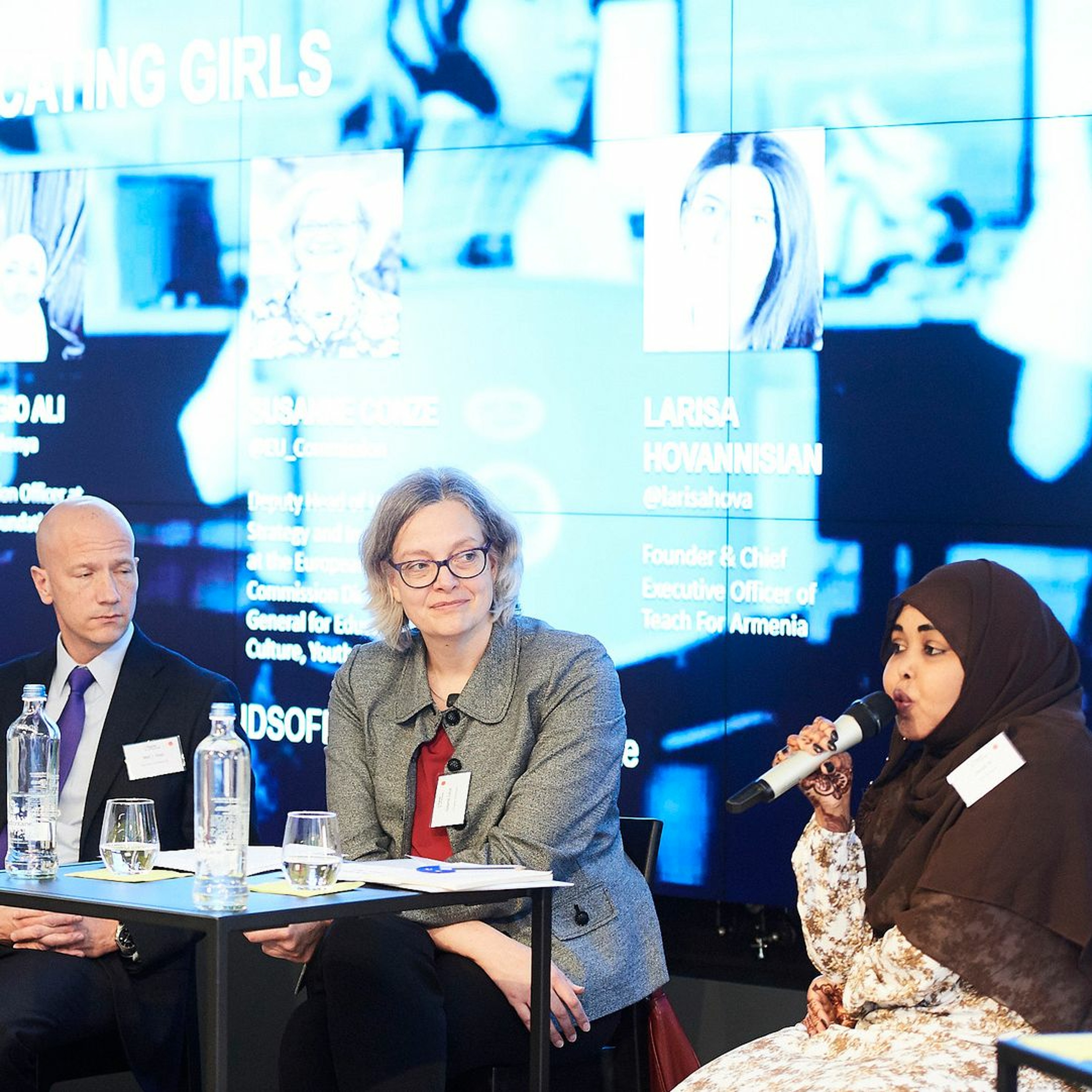EDUCATING GIRLS - Agenda 2030 should be Gender 2030

hat more can the EU do to stop girls\u2019 education languishing as a footnote and instead be the headline to the conversation about the world\u2019s sustainable development goals?\n\nGender equality and access to quality education are key parts of the UN\u2019s Agenda 2030, but should it really be called \u2018Gender 2030?\u2019, asked Friends of Europe at its Educating Girls debate in Brussels on 27 February.\n\nEvery day 130m girls are not in school and, by any measure, they and the wider world are worse off for it. So why are we failing to remove the barriers in their way and how can we \u201cchange this rather nasty paradigm?\u201d said moderator and director for Europe and Geopolitics at Friends of Europe, Shada Islam.\n\n\u201cNone of the 17 UN goals can be achieved without the active participation of women,\u201d she said.\n\nSpeakers from the UN, European Commission and specialist NGOs were asked to consider whether the EU should: use girls\u2019 education as a key condition for countries receiving development aid; make it a specific part of accession talks, and deny aid and trade benefits to those spending more on defence than education.\n\nAt ground level, as well as dealing with structural barriers to education \u2013 such as lack of access to toilets \u2013 speakers emphasised the importance of having a direct dialogue with communities, including concrete examples of positive work in Afghanistan and Armenia. \n\nParticipants also heard from Bangio Ali, an Education Officer at the AVSI Foundation, in Kenya, who focuses on girls and mothers\u2019 rights and out-of-school children. Despite the odds against it, she had the educational opportunities her mother was denied, and went on to work directly with girls and families in her own Somali community in Kenya, including in refugee camps.\n\n\u201cI am where I am because of education,\u201d she said.\n\nMore info: https://www.friendsofeurope.org/event/educating-girls